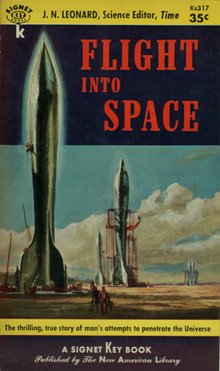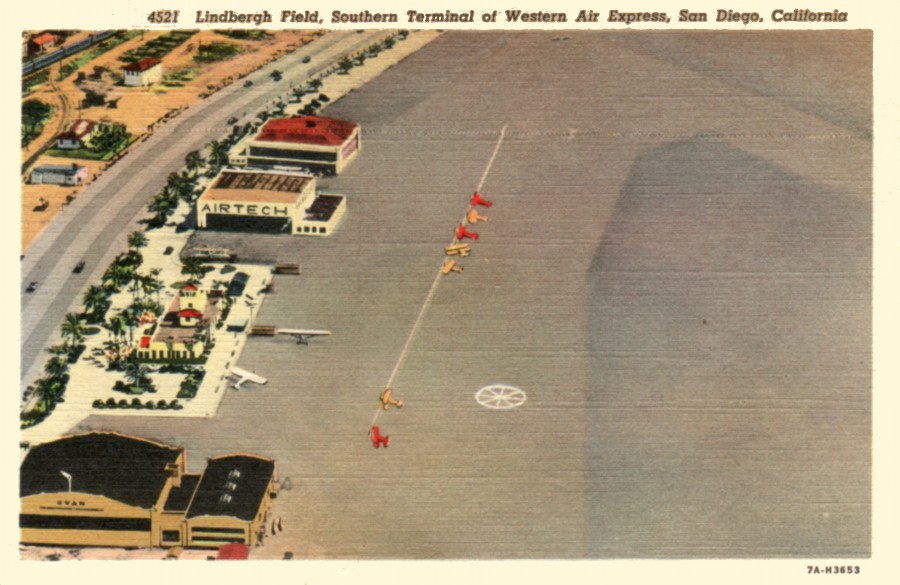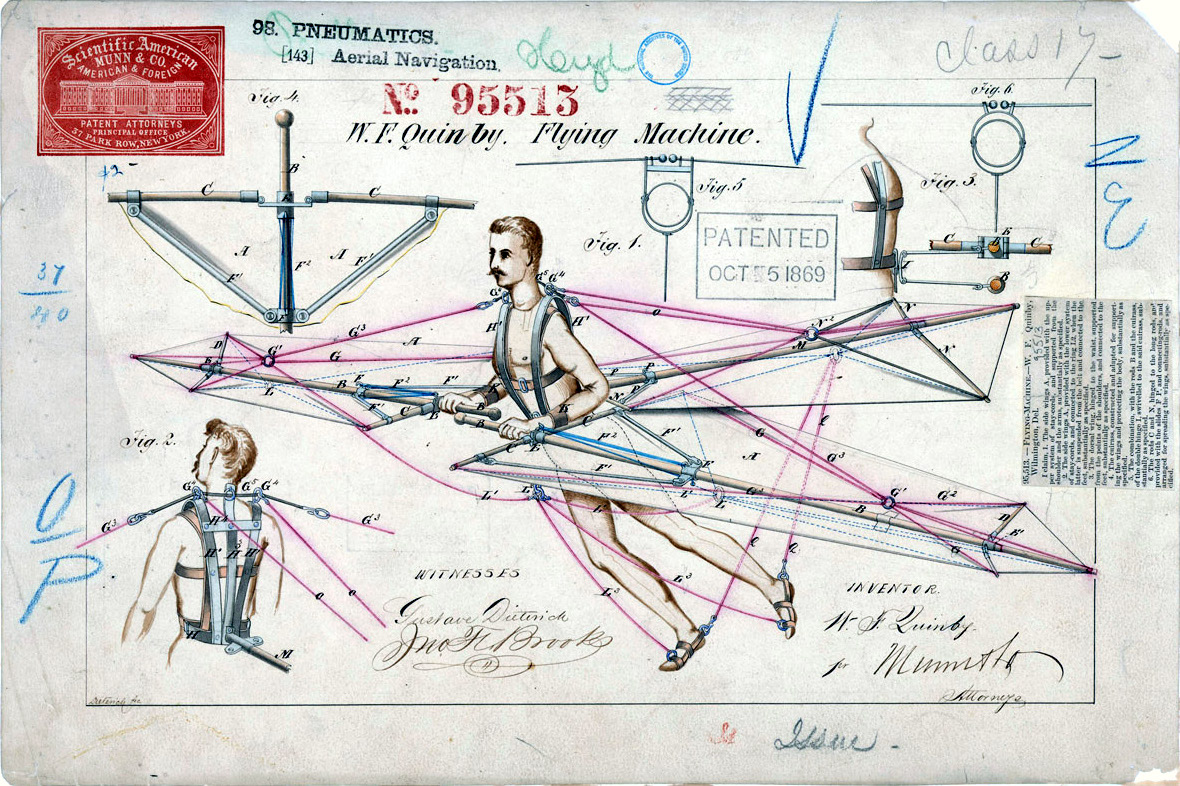 Aerospace at Troynovant:
Aerospace at Troynovant:
winging and thrusting into Air & Space;
visionaries, scientists, & engineers
and the development of designs & vehicles;
listed by Title
Naturally the fact that so much that was theory is now reality has changed the public attitude. When I wrote about the idea of space travel in 1944 I felt it was necessary to put considerable emphasis on the fact that I was serious. Every sentence which was not strictly historical was carefully weighed; I wanted to impress upon the reader that the people who had thought about space travel were people who knew how to think. This is now generally taken for granted.
The question is no longer whether space-travel theory is serious, or whether it is correct. The question now is simply how soon engineering practice will catch up with existing theory.
Willy Ley
"Foreword"
Rockets, Missiles, and Space Travel (1951)
| Absent-Minded Professor, The | Robert Stevenson / Fred MacMurray, Keenan Wynn | RW Franson |
| Alcohol Plant Springfield, Oregon 1947 |
WR Franson | |
| Argonauts of the Air, The | H. G. Wells | RW Franson |
| Asimov's Biographical Encyclopedia of Science and Technology |
Isaac Asimov | RW Franson |
| Beyond the Horizons The Lockheed Story |
Walter J. Boyne | RW Franson |
| Big Bounce, The | Walter S. Tevis | RW Franson |
| Black Star Passes, The | John W. Campbell | R Grube |
| Bread Overhead | Fritz Leiber | RW Franson |
| Brick Moon, The | Edward Everett Hale | RW Franson |
| Buck Rogers The First 60 Years in the 25th Century |
Lorraine Dille Williams | DL Franson |
| Discovery of a World in the Moone, The or, A Discourse Tending to Prove that 'tis probable there may be another habitable World in that Planet |
John Wilkins | RW Franson |
| Fire Came By, The [Tunguska, Siberia 1908] |
John Baxter & Thomas Atkins |
RW Franson |
| Freddy the Pilot | Walter R. Brooks | RW Franson |
| Future History series | Robert A. Heinlein | RW Franson |
| Have Space Suit — Will Travel | Robert A. Heinlein | RW Franson |
| I Was Ejected from a Spaceship Atlas 10-B Orbits the Earth San Diego 1958 |
WR Franson | |
| Mightiest Machine, The | John W. Campbell | R Grube |
| NASA Schooldays Houston, Texas |
A Cox | |
| New Solar System, The | J. Kelly Beatty, Carolyn Collins Petersen & Andrew Chaikin |
RW Franson |
| Past Through Tomorrow, The Future History Stories |
Robert A. Heinlein | RW Franson |
| Pilots' Proverbs Parental Wisdom Brought Down to Earth |
RW Franson | |
| Redemption Cairn | Stanley G. Weinbaum | RW Franson |
| Remarkable Rocket, The | Oscar Wilde | RW Franson |
| Robert A. Heinlein A Reader's Companion |
James Gifford | RW Franson |
| Rocket Belts' Slow Liftoff | RW Franson | |
| Rocket Ship Galileo | Robert A. Heinlein | RW Franson |
| Temeraire series | Naomi Novik | WH Stoddard |
| Unwilling Hero, The | L. Ron Hubbard | RW Franson |
[Westminster, London.]
Warwick:Be patient, princes; you do know these fits
Are with his highness very ordinary.
Stand from him, give him air: he'll straight be well.William Shakespeare
2 Henry IV, 4.3.114-116

Fuel at Troynovant
wood, coal, & oil;
wind & water; nuclear & solar
Gravity at Troynovant
gravitation & contragravity:
applied, shaped, & redirected
Luna at Troynovant
the Moon, Lunar exploration
ReFuture at Troynovant
history of science fiction
& progress of fantasy
Solar at Troynovant
Solar System in general,
Sun, multiple planets
paperback cover, top right:
Flight into Space
by J. N. Leonard
postcard, above:
Lindbergh Field
San Diego, California
illustration, bottom:
Quinby Flying Machine Patent
1869
[ After discussing Johann Kepler's connection of flight and Lunar colonization in Somnium (1608; published 1634) being picked up by John Wilkins in his The Discovery of a World in the Moone (1638), Nicolson goes on: ]
I am quite convinced that great stimulus to what we call "aviation" came about in the seventeenth century because of this very belief that the first nation to discover the principle of flight would be the first to plant its flag on the moon — and even on the planets. One country jealously watched the aeronautical progress of another. ...
As our voyagers mount up into the ether, we shall hear more of the rivalry between nations, for the moon was to be claimed in turn by Spaniards, Italians, Dutch, and many others beside the British. Every time I have discovered another picture of the moon-world I have first looked eagerly to see which flag floats over its territory. Neither England nor Germany nor any other nation has yet succeeded in that early hope of moon colonization. But if ever a planet rocket is perfected or Major de Seversky's space ship becomes as feasible as he thinks it plausible, this motif will return again to literature, as to politics and economics, and what once was satire or romance will become a matter of profound national and international importance.
Marjorie Hope Nicolson
Voyages to the Moon (1948)
The advance probes formed an ingenious approach to the problem of getting a man further out in space than any man had been before, but it was horribly risky. But apparently the Russians could afford to take such risks. The Americans couldn't. They had a settled policy of spending a dollar instead of a man. It was humanitarian, but it had one drawback. There was a tendency to keep on spending dollars and not ever let a man take a chance.Murray Leinster
The Wailing Asteroid (1960)

| Troynovant, or Renewing Troy: | New | Contents | |
| recurrent inspiration | Recent Updates | |
|
www.Troynovant.com |
||
|
Reviews Essays by Title:
A-B
C-F
G-L
M-R
S-Z
If you do not see the Troynovant banner at the top, |
||
| Personae | Strata | Topography |
|
|